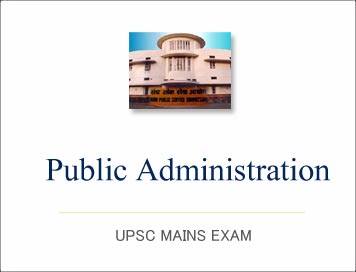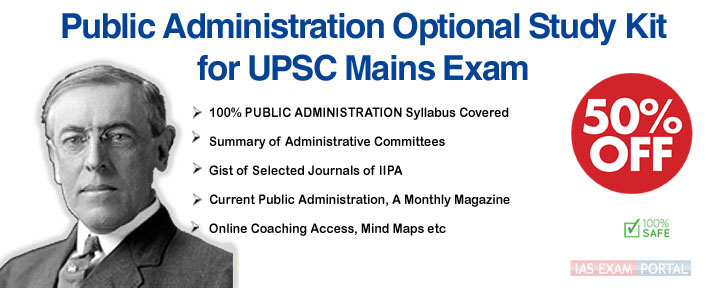UPSC Mains 2022 Public Administration Optional Categorized Analysis (Paper-2)
UPSC Mains 2022 Public Administration Optional Categorized Analysis (Paper-2)
- Exam Name: UPSC IAS Mains Public Administration (Paper-II)
- Marks: 250
- Time Allowed: 3 Hours
SECTION A
Q1. Answer the following questions in about 150 words each: 10 x 5 = 50 Marks
1.(a) “Mughal administrative system was centralised despotism”. Comment. (Evolution of Indian Administration)
(b) “The office of the District Collector admirably survived the changing times from colonialism to the present times”. Comment. (Evolution of Indian Administration)
(c) “The smooth transaction of business in Ministries and Departments depends on the role played by Cabinet Secretariat”. Discuss. (Public Sector Undertakings)
(d) “The Government of India Act, 1935 is the most important source of Indian constitution”. Identify its features. (Evolution of Indian Administration)
(e) “The Chief Secretary is the chief communication link between the state and central government”. Explain. (Union Government and Administration)
2:- (a) “The Indian federal structure is largely symmetric albeit with some asymmetric features”. Examine the status of States and Union Territories through the principle of weighted and differentiated equality in India. (20) (Union Government and Administration)
(b) The Atmanirbhar Bharat Abhiyaan is a progressive policy. Analyse. (20) (Plans and Priorities)
(c) “Indicative Planning, is a middle path of planning and market mechanism to ensure coordination between public and private activities.” Explain. (10) (Plans and Priorities)
3:- (a) “The New Economic Reforms during the past three decades have not only reduced the scope of industrial licensing and areas reserved exclusively for Public Sector but also infringed the autonomy of existing public sector undertakings”. Examine. (20) (Plans and Priorities)
(b) “National Institution for Transforming India (NITI) Ayog has become super cabinet in formulating the development agenda of our country”. Examine the statement by giving suitable examples. (20) (Plans and Priorities)
(c) Despite the constitutional status, the District planning committees remained a non-entity in preparation and implementation of plans. Discuss. (10) .(District Administration since Independence)
4:- (a) “The Indian judicial system has failed to deliver justice expeditiously”. Examine the challenges faced by the judiciary and suggest measures to overcome them. (20) (Union Government and Administration)
(b) Analyse the specific areas of controversies with regard to Union-State financial relations, particularly in the context of one nation – one tax policy. (20) (Union Government and Administration)
(c) Examine the role of central government in adjudication of disputes relating to water of interstate rivers. (10) (Union Government and Administration)
SECTION B
5:- Answer the following in about 150 words. (10 x 5 = 50)
(a) Examine the lateral entry recruitment in government in the context of Part XIV of the Indian Constitution.(Civil Services)
(b) Examine the role of Securities and Exchange Board of India (SEBI) in protecting the interests of the investors in securities. (Financial Management)
6:- (a) The recommendations of National Finance Commissions are more norms based than the need based. In the light of this statement analyse the terms of references of 15th National Finance Commission. (20) (Financial Management)
(b) “The objective of Mission Karmyogi is to enhance capacity building of Indian Civil Servants and improve governance.” Discuss. (20) (Civil Services)
(c) Parliamentary control over administration is no substitute for judicial control. Comment. (10) (Public Sector Undertakings)
7:- (a) In India, for the upliftment of majority of people, governmental intervention remains a central fact of life. Nevertheless, the effective implementation of policies depends on the ethical values of Public Servants. Discuss. (20) (Civil Services)
(b) Comptroller and Auditor General (CAG) is today a primary cause of widespread and paralysing unwillingness on the part of government institutions to decide and act. Discuss. (20) (Financial Management)
(c) Do you think that the new localism relegate the spirit of 74th Constitutional Amendment Act, 1992? (10) (Urban Local Government )
8:- (a) The main objective of Panchayats (Extension to Scheduled Areas) Act, 1996 is to enable tribal society to assume control over their livelihoods and traditional rights. Critically examine the implementation of the Act. (20) (Rural Development)
(b) The effectiveness of law and order administration depends on cooperative attitudes of people towards police, than bringing reforms in the structure and procedures of law and order machinery. Do you agree? Give reasons. (20) (Law and Order Administration)
(c) Examine the role of Lokpal in ensuring transparency and accountability in Indian administration. (10) (Significant issues in Indian Administration)



